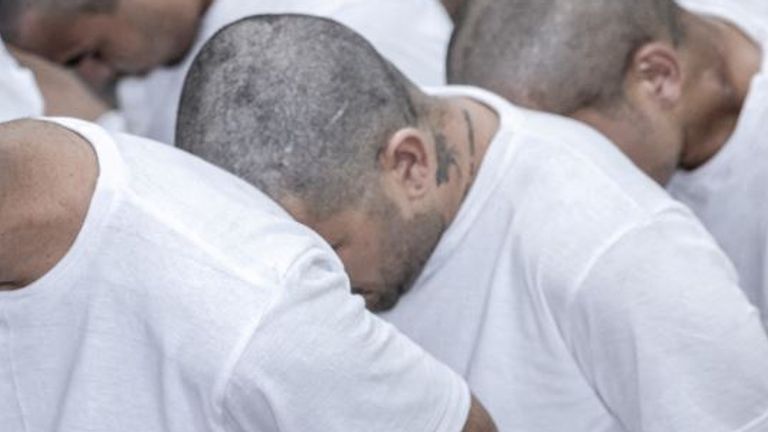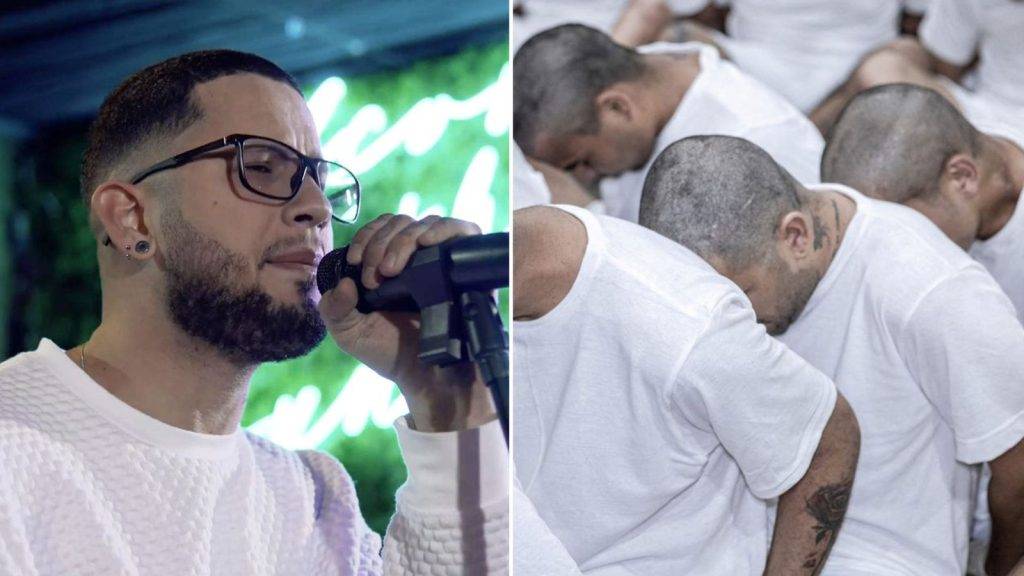Cliff Notes – Thrown to the lions in El Salvador jail by Trump
- Arturo Suarez, a Venezuelan singer awaiting asylum in the US, was deported to a notorious prison in El Salvador, labelled as a gang member without evidence, as part of Trump‘s anti-immigration policies.
- His family has not heard from him since his detention, and he is believed to be among over 200 Venezuelan men imprisoned based solely on tattoos, rather than any proven wrongdoing.
- The Trump administration’s Alien Enemies Act has enabled the detention and deportation of immigrants from perceived “enemy” nations, with ongoing cases raising concerns about due process and human rights abuses.
- The United States has implied gang tattoos in Venezuela work in the same way as they do in the United States.
My brother was thrown to the lions in El Salvador jail by Trump administration
Until five weeks ago, Arturo Suarez was a professional singer, performing in the United States as he waited for his asylum claim to be processed.
Originally from Venezuela, he had entered the US through proper, legal channels.
But he is now imprisoned in a notorious jail in El Salvador, sent there by the Trump administration, despite seemingly never having faced trial or committed any crime. The White House claims he is a gang member but has not provided evidence to support this allegation.
His brother, Nelson Suarez, told US News he believes his brother’s only “crime” is being Venezuelan and having tattoos.
“He is not a gang member,” Nelson says, adamantly, “I’ve come to the conclusion that it has to be because of the tattoos. If you don’t have a criminal record, you haven’t committed any crime in the United States, what other reason could there be? Because you’re Venezuelan?”
Arturo, 34, was recording a music video inside a house in March when he was arrested by immigration agents.
He was first taken to a deportation centre in El Paso, Texas, and then, it appears, put on to a military flight to El Salvador.
Tattoo clue to Arturo Suarez’s whereabouts
Nelson learned his brother is – most likely – in CECOT only because of a photograph he spotted on a news website of a group of inmates, with their hands and feet cuffed, heads shaved and bodies shackled together.
“You can see the hummingbird tattoo on his neck,” Nelson says, pointing to the picture. He says Arturo wanted a hummingbird in memory of their late mother. Arturo has 33 tattoos in total, including a piano, poems and verses from the Bible.
It could be that one, or more, of those tattoos landed him at the centre of President Trump’s anti-immigration showpiece. Nelson shows me documents which indicate that Arturo did not have a criminal record in Venezuela, Chile, Colombia or the United States, the four countries he has lived in.

Sky News contacted the White House, the Department of Homeland Security (DHS), and Immigration and Customs Enforcement (ICE) for a response to Arturo’s case but have not heard back.
In March, Donald Trump signed the Alien Enemies Act, a law from 1798 which has been invoked just three times before, in wartime.
It allows the president to detain and deport immigrants living legally in the US if they are from countries deemed “enemies” of the government. In this instance, Mr Trump claimed the Venezuelan gang Tren de Aragua had “infiltrated the United States” and was “conducting irregular warfare”.
Gang symbol tattoos
Immigration officials have centred on certain tattoos being gang symbols. Immigration officers were provided with a document called the “Alien Enemy Validation Guide”, according to a court filing from the American Civil Liberties Union. The document provides a point-based system to determine if an immigrant in custody “may be validated” as a gang member.
Migrants who score six points and higher may be designated as members of the Tren de Aragua gang, according to the document. Tattoos which fall under a “symbolism” category score four points and social media posts “displaying” gang symbols are two points. Tattoos considered suspicious, according to the document, include crowns, stars and the Michael Jordan Jumpman logo.
Jerce Reyes Barrios’s story
Another of the men sent to CECOT prison is 36-year-old Jerce Reyes Barrios, who fled Venezuela last year after marching in anti-government protests. He is a former footballer and football coach.
His lawyer, Linette Tobin, told US News that Reyes Barrios entered the US legally after waiting in Mexico for four months for an immigration appointment and then presenting himself at the border.
She says he was detained in a maximum security prison in the US while awaiting his asylum appointment. But before that appointment happened, he was flown to the El Salvador prison.
Ms Tobin says the DHS deported Reyes Barrios because they designated him a Tren De Aragua gang member based on two pieces of evidence.
The second piece of evidence, she says, is a photograph, which she shows me, of Reyes Barrios in a hot tub with friends when he was a college student 13 years ago.
He is making a gesture which could be interpreted as “rock and roll”, but which she says has been interpreted as a gang symbol.
Distraught family in despair
Reyes Barrios has no criminal record in his home country. “I’ve never known anything like this,” Ms Tobin says.
“My client was deported to a third country and we have no way of getting in touch with him. His family are distraught and in despair, they cry a lot, not knowing what is going on with him. We want him returned to the United States to have a hearing and due process.”
Ms Tobin says she and other lawyers representing men sent to the El Salvador prison are trying to establish a UN working group on enforced disappearances to do a wellness check on them because the prison is completely “incommunicado”.


